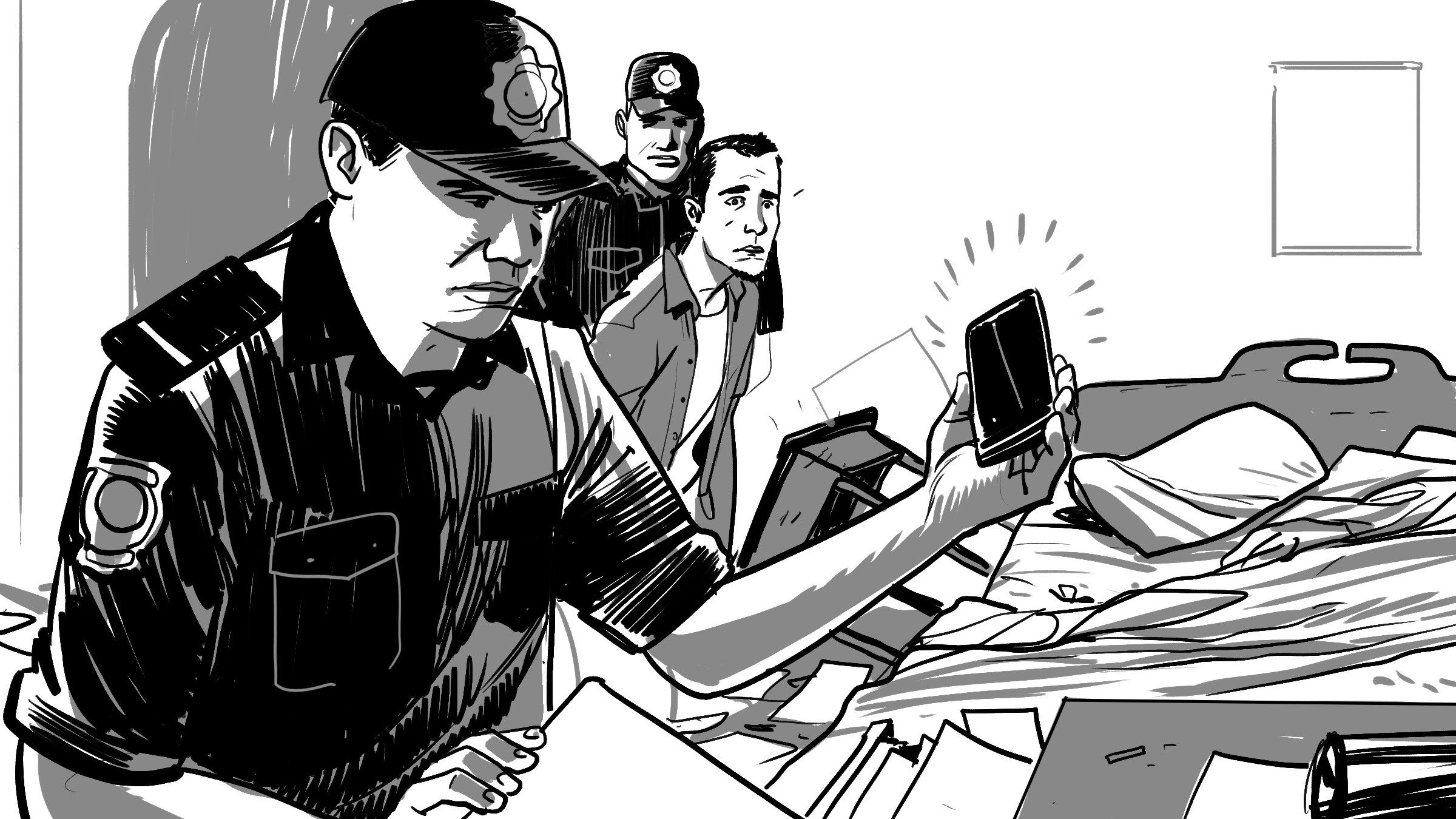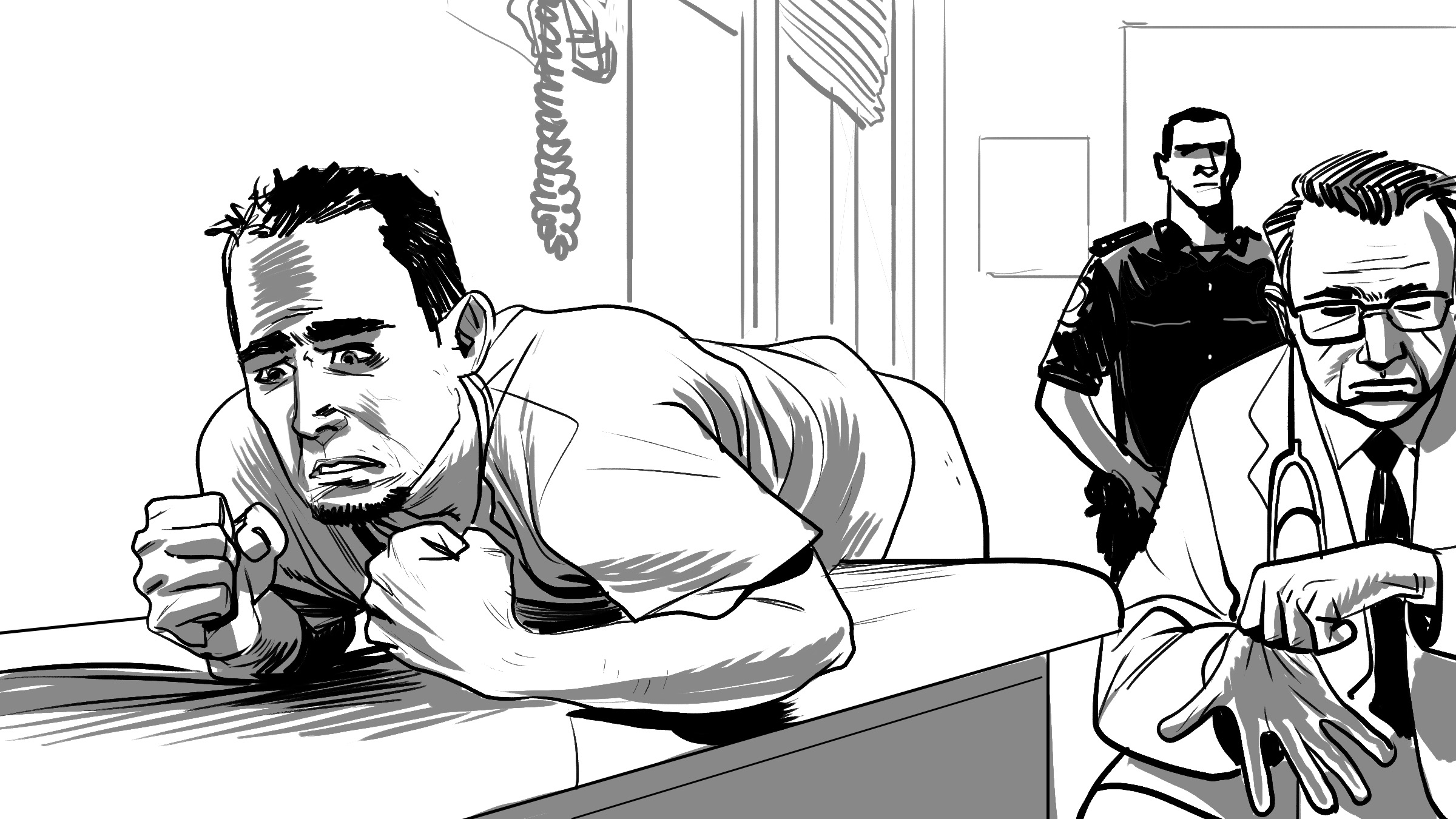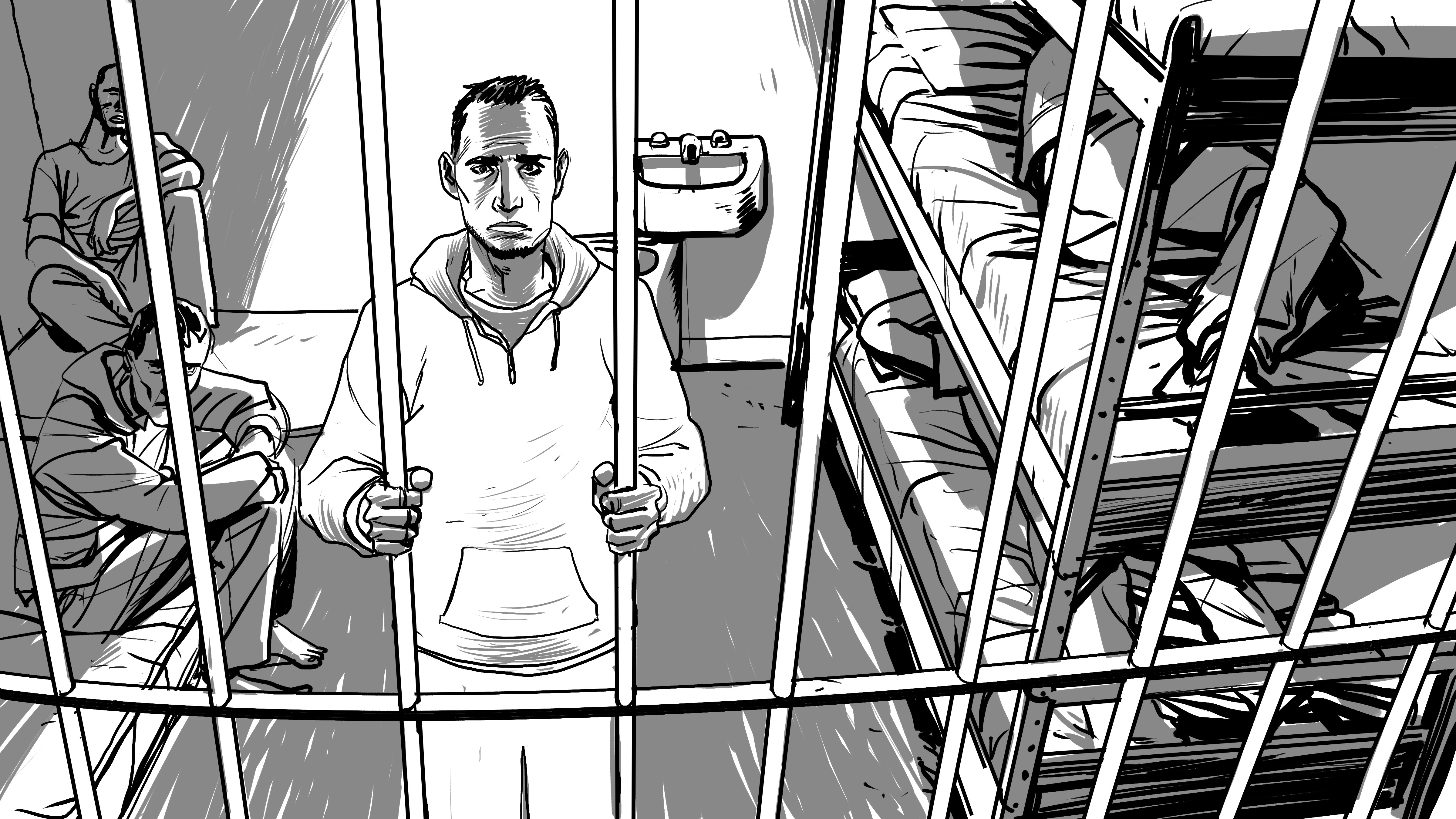Tunisia, stop searching phones and anuses; abolish anti-gay law
Colin Stewart is a 45-year journalism veteran living in Southern…
Tunisian authorities are confiscating and searching the phones of men they suspect of being gay and pressuring them to take anal tests and to confess to homosexual activity, Human Rights Watch (HRW) said today.
The following HRW video is in French with English subtitles:
The HRW press release continued:
Prosecutors [use information collected from men’s phones and from anal exams] to prosecute them for homosexual acts between consenting partners, under the country’s harsh sodomy laws.
“The Tunisian authorities have no business meddling in people’s private sexual practices, brutalizing and humiliating them under the guise of enforcing discriminatory laws,” said Amna Guellali, Tunisia director at Human Rights Watch. “Tunisia should abolish its antiquated anti-sodomy laws and respect everyone’s right to privacy.”
Human Rights Watch spoke with six men prosecuted in 2017 and 2018 under article 230 of the penal code, which punishes consensual same-sex conduct with up to three years in prison. One person interviewed was only 17 years old the first time he was arrested. Human Rights Watch also reviewed the judicial files in these cases and five others that resulted in prosecutions under either article 230 or article 226, which criminalizes “harming public morals.” In addition to violating privacy rights, these cases included allegations of mistreatment in police custody, forced confessions, and denial of access to legal counsel.

Police arrested some of these men after disputes arose between them or after neighbors reported them. Two had gone to the police to report being raped.
Some of the men spent months in prison. At least three have left Tunisia and applied for asylum in European countries.
K.S., a 32-year-old engineer, entered a police station in Monastir in June 2018 to file a complaint of gang rape, and to get an order for a medical examination of his injuries. Instead of treating him as a victim, he said, the police ordered an anal test to determine whether K.S. was “used to practicing sodomy.” “How they treated me was insane,” K.S. told Human Rights Watch. “How is it their business to intrude into my intimate parts and check whether I am ‘used to sodomy’?”
In another case, a 17-year-old was arrested three times on sodomy charges and was forced to undergo an anal examination, as well as months of conversion therapy at a juvenile detention center. Both harmful practices are discredited.
Tunisian prosecutors have relied extensively in recent years on forced anal examinations to seek “evidence” of sodomy, even though the exams are highly unreliable and constitute cruel, degrading, and inhuman treatment that can rise to the level of torture.

On September 21, 2017, during the Universal Periodic Review at the United Nations Human Rights Council, Tunisia formally accepted a recommendation to end forced anal exams. However, Tunisia’s delegation stated: “Medical examinations will be conducted based on the consent of the person and in the presence of a medical expert.” This stance is not credible because trial courts can presume that a refusal to undergo the exam signals guilt, Human Rights Watch said. Tunisia should abandon anal exams altogether.
Prosecutions for consensual sex in private and between adults violate the rights to privacy and nondiscrimination guaranteed by the International Covenant on Civil and Political Rights, to which Tunisia is a party. The United Nations Human Rights Committee, which monitors compliance with the covenant, has stated that sexual orientation is a status protected against discrimination. The UN Working Group on Arbitrary Detention has found that arrests for same-sex conduct between consenting adults are, by definition, arbitrary.
Tunisia’s 2014 constitution, in article 24, obliges the government to protect the rights to privacy and the inviolability of the home. Article 21 provides that “All citizens, male and female, have equal rights and duties, and are equal before the law without any discrimination.” Article 23 prohibits “mental and physical torture.”
The Code of Criminal Procedure prohibits house searches and seizure of objects that could serve a criminal investigation without a judicial warrant, except in cases of flagrante delicto, that is when catching someone in the act.
Article 1 of Law No. 63 on the protection of personal data stipulates that “every person is entitled to the protection of their personal data and privacy of information, viewed as a fundamental right guaranteed by the constitution. This data can only be used with transparency, loyalty and respect for the dignity of the person whose data is subject of treatment.” However, neither Law No. 63 nor any other domestic law regulates the conditions for seizing private data during a police investigation or its use.

On June 12, the Commission on Individual Freedoms and Equality, appointed by President Beji Caid Essebsi, proposed, among other actions, to decriminalize homosexuality and to end anal testing in criminal investigations into homosexuality. It also proposed criminalizing the unlawful “interception, opening, recording, spreading, saving and deleting” of an electronic message.
On October 11, 13 members of the Tunisian Parliament introduced draft legislation for a code on individual freedoms. It incorporated several proposals from the presidential commission including abolition of article 230.
Parliament should move quickly on this draft legislation and abolish article 230, Human Rights Watch said. It should enact a law that effectively protects people’s privacy, through regulating the seizure and use of private data during criminal investigations, with consequences if such a law is violated.
The Justice Ministry should meanwhile direct public prosecutors to abandon prosecutions under article 230. The Interior Ministry should investigate reports of the ill-treatment of people arrested based on their gender identity or sexual orientation.
Human Rights Watch conducted face to face interviews with men in Tunisia and phone interviews with men who fled to European countries. Pseudonyms have been used to protect their privacy.
Shams and Damj, local LGBT rights groups, provided assistance.
See the full press release for the detailed accounts of 12 men prosecuted under these laws.
Related articles:
- Tunisian officials propose repeal of anti-gay law (
- Rift splits Tunisian LGBT rights advocates (April 2018, 76crimes.com)
- New coalition in Tunisia fights for LGBTQI rights (February 2017, 76crimes.com)
- Tunisia gets its first queer film festival (January 2018, 76crimes.com)
- Tunisia: LGBT online radio undaunted by 5,000 threats (
- Tunisia drops anal tests, but not its anti-gay law (September 2017, 76crimes.com)
- 2 arrests in Tunisia; protests block anal tests (December 2016, 76crimes.com)
- U.N. panel to Tunisia: Stop forced anal exams (May 2016, 76crimes.com)
- Tunisia: Protests against anal exam, sodomy sentence (September 2015)
- Tunisia: Teen gets 4-month sentence for homosexuality (June 2017, 76crimes)
- Tunisian police make LGBT arrests based on Facebook (April 2017, 76crimes.com)
- Q. Can Tunisia’s only queer shelter be saved? A. Yes (April 2017, 76crimes.com)
- Tunisian filmmaker, student jailed on gay-sex charges (March 2017, 76crimes.com)
- Tunisia: 2 months in jail for 2 men for behaving like women (March 2017, 76crimes.com)
- 2 young Tunisians sentenced to 8 months for gay sex (March 2017, 76crimes.com)
- New coalition in Tunisia fights for LGBTQI rights (February 2017, 76crimes.com)
- Tunisian judge jails trans woman pending indecency trial (January 2017, 76crimes.com)
- Jan. 6 trial in Tunisia for being gay on the street (December 2016, 76crimes.com)
- Tunisian police arrest and humiliate trans youth (November 2016, 76crimes.com)
- Amid democratic reforms, deeper troubles for LGBT Tunisians (October 2016, 76crimes.com)
- Homophobic attack on LGBTI rights defender in Tunisia (August 2016, 76crimes.com)
- Tunisia: Attack targets LGBTQ activist from Shams (April 2016, 76crimes.com)
- Appeal for an end to anti-LGBT campaign in Tunisia (April 2016, 76crimes.com)
- Human rights advocates decry 3-year sentences in Tunisia (December 2015, 76crimes.com)
- Tunisia: Death threats against LGBT activists (December 2015, 76crimes.com)
- Tunisian LGBT rights group under attack (December 2015, 76crimes.com)
- Tunisian justice minister seeks repeal of gay sex ban (September 2015, 76crimes.com)
- Tunisia: Protests against anal exam, sodomy sentence (September 2015, 76crimes.com)




Courts skew the case against Jamaican anti-sodomy law